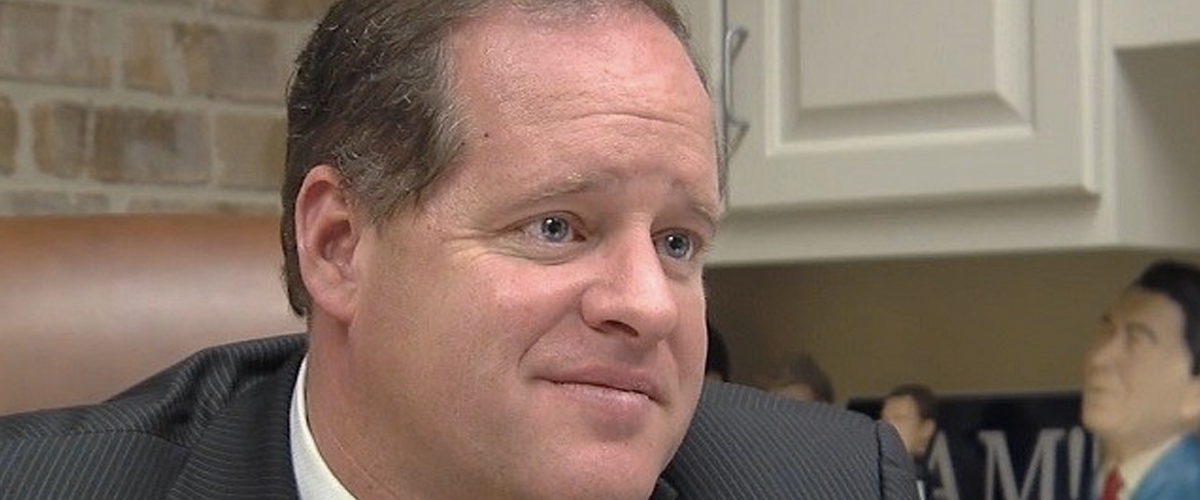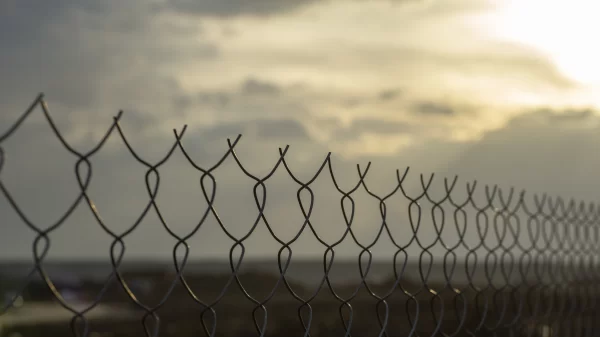By Chip Brownlee
Alabama Political Reporter
MONTGOMERY — The plan to build four new “mega” prisons at a cost of up to $845 million is dead for this Legislative Session, the bill’s sponsor confirmed to the Alabama Political Reporter.
With the Legislative Session hastening to an end and only a few meaningful hours left to pass anything, the bill hit a brick wall in the House, which has been held hostage by on-and-off Democratic filibusters for the past week. Commotion over an email black lawmakers found offensive Tuesday also lessened the bill’s chances of getting to the floor for a vote.
The bill’s sponsor, Sen. Cam Ward (R-Alabaster), told APR that there was little hope for his bill — a consistent source of controversy this Session — to make it on the floor as the House continues to battle over the Republican’s even more controversial redistricting plan. It was even less likely the bill would pass in time to get back up to the Senate for a concurrence.
The death of the prison bill was largely the result of factionalization within the Republican caucus. GOP lawmakers became split between moderate and conservative voices who disagreed over the size of and methods within the plan, which would have authorized three new 4,000-bed regional men’s facilities and a 1,200-bed women’s facility.
The bill took weeks to make it out of the Senate and eventually passed in March in a toned-down form. Lawmakers had disagreed over the nontraditional bidding process and the near-$1-billion bond issue the bill called for.
Last week, after a month and a few weeks, the bill eventually popped back up in the House where it faced opposition that was perhaps even more vehement. It passed Judiciary Committee Tuesday in a surprisingly positive vote, but it doesn’t appear likely that it will make it back up Thursday or Friday, which are the last two days in the 2017 Legislative Session.
The plan was an effort to reduce severe overcrowding in Alabama’s prisons, which was verging on 200 percent capacity in the past few years. Ward, who has led efforts for prison sentencing reform and other criminal issues, was instrumental in passing sentencing reforms that have reduced overcrowding to about 170 percent capacity today.
But that isn’t enough, Ward has told APR. Consistent overcrowding combined with worsening dilapidation of prisons that were built largely in the 1960s and 1970s, new facilities were needed to expand capacity and improve conditions, he has said.
“If we don’t do something soon, the federal courts are going to end up ordering us to pay millions of dollars anyway,” Ward told APR. “We can’t keep kicking the can down the road.”
The Federal Judiciary has shown increasing impatience with Alabama’s prison system. In recent years, conditions at Tutwiler Prison were so bad that a Federal court ruled them unconstitutional and ordered improvements. The US Department of Justice launched a larger investigation in 2015.
ADOC is also facing a looming ruling in a mental-health lawsuit filed by the Montgomery-based Southern Poverty Law Center. The SPLC also has a medical lawsuit that is waiting to go to trial in the next year.
But the SPLC and other left-leaning groups, along with most Democrats in the Legislature, didn’t support the plan. They said they hoped the large sum of money could be used for other more pressing needs such as improving correctional officer pay and hiring more mental health staff.
“If we had unlimited resources in Alabama, I would be all for this, but every dollar we spend on this takes money away from other things that we need to be doing,” SPLC legal director Ronda Brownstein said. “We need to be hiring more corrections officers and mental health staff.”
By consolidating the prisons into three mega-facilities, the State could save $47 million a year — enough to finance the bond payments — and wouldn’t need as many guards, ADOC officials have said. The plan would have been financed through revenue bonds, which cannot be used for anything other than capital investment such as one-time construction or renovations.
Proponents, ADOC, the National Institue of Corrections and the Legislative Fiscal Office all said the plan would have been revenue neutral — paying itself off over the next three decades without impacting the State’s beleagured General Fund.
Others weren’t convinced.
“When we invest a billion in buildings we are not investing in people,” Rep. Chris England (D-Tuscaloosa) said, “We’ll exhaust all of our political will on something that doesn’t solve the problems.”
Some who were opposed, including Republicans like Rep. Allen Farley (R-McCalla), have called on Gov. Kay Ivey to call a Special Session to address prison reform, which could still be a possibility considering ADOC Commissioner Jeff Dunn’s apparent persistence with the plan.
With the bill’s now imminent death, supporters of the plan may soon begin urging Ivey to call a session or include prison reform in any call she makes on another issue.
Email Chip Brownlee at cbrownlee@alreporter.com or follow him on Twitter.




















































